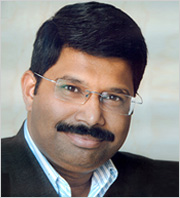
The lawyer for some of the students who were accused of cheating says that Asian students were unfairly singled out for harsh punishment.
The controversy began in late April, when 34 students at Fuqua, which ranks ninth in BusinessWeek’s rankings of fulltime programs, were accused of cheating on an exam and coursework. (See BusinessWeek.com, “Duke MBAs Fail Ethics Test” http://www.businessweek.com/bschools/content/apr2007/bs20070430_110466.htm). Nine students were expelled, 15 students were suspended, and the rest were given failing grades. The accused students comprised nearly 10% of the Fuqua class of 2008.
Almost immediately, rumors began circulating that many of the students who were accused of cheating were Asian. Robert Ekstrand, a lawyer who filed appeals on behalf of 16 of the students, told the Associated Press that Asian students were treated more harshly than others. The lawyer said students from countries including China, Korea and Taiwan confessed instead of fighting the charges because of cultural differences. In some cultures, “a confession or an admission of guilt can be a way to apologize,” Ekstrand said.
School officials, citing student confidentiality, didn’t release the names or details about the students who were punished for violating the school’s Honor Code. However, in a statement following rejection of all the student appeals in the case, Fuqua Dean Douglas Breeden said “those who have received the harshest penalties (expulsion or suspension) come from three continents and represent both foreign and domestic students.”
Breeden added: “This has been a regrettable time at Fuqua, but it also provides us with a valuable reminder that our Honor Code is what unites us across the diverse nationalities and cultures that we welcome here at Fuqua.” (See BW.com, “Duke Works to Stem Fuqua Fallout” http://www.businessweek.com/bschools/content/may2007/bs20070503_880250.htm)
The issue of whether Asian students were treated unfairly could loom large at top U.S. B-schools, where international students often make up 30% or more of the MBA programs. (Duke’s fulltime MBA program is 39% international students.) The only thing that is completely clear about the case at this point is that with the large number of B-school students studying in countries other than their own, the possibility for a clash of learning cultures can only increase.
Phil Mintz in the B-Schools Channel Editor for BusinessWeek.com in New York. He can be reached at [email protected]



























